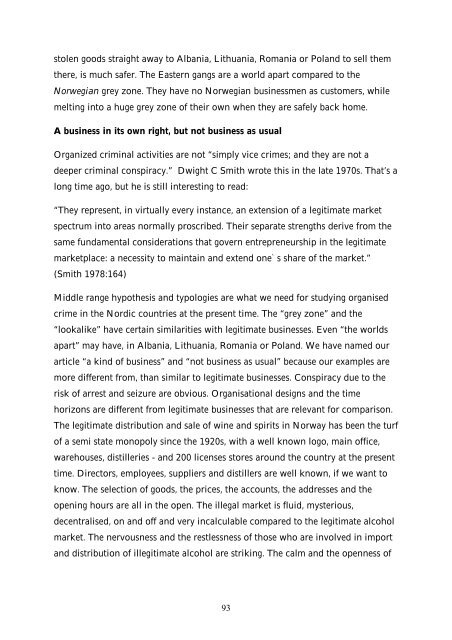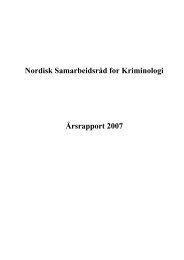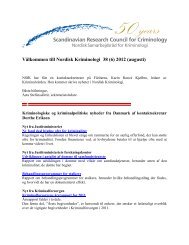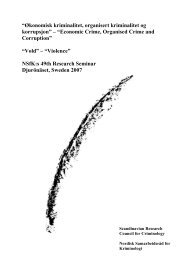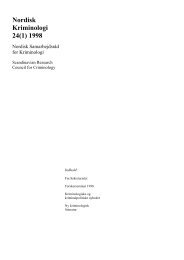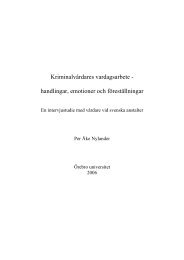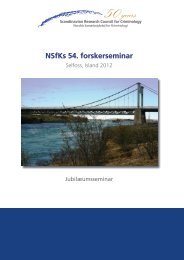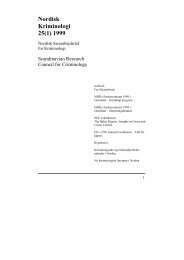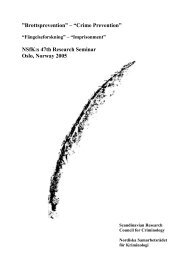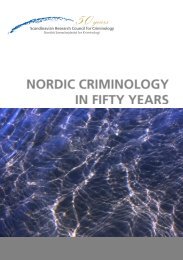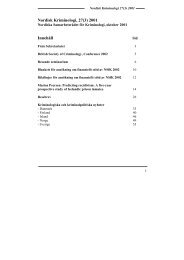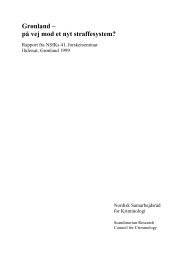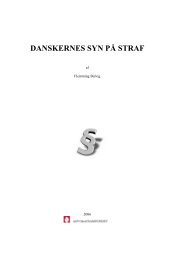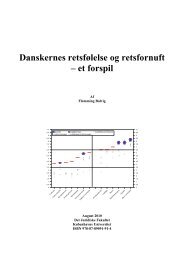Økonomisk Kriminalitet Nordiske Perspektiver - Scandinavian ...
Økonomisk Kriminalitet Nordiske Perspektiver - Scandinavian ...
Økonomisk Kriminalitet Nordiske Perspektiver - Scandinavian ...
Create successful ePaper yourself
Turn your PDF publications into a flip-book with our unique Google optimized e-Paper software.
stolen goods straight away to Albania, Lithuania, Romania or Poland to sell them<br />
there, is much safer. The Eastern gangs are a world apart compared to the<br />
Norwegian grey zone. They have no Norwegian businessmen as customers, while<br />
melting into a huge grey zone of their own when they are safely back home.<br />
A business in its own right, but not business as usual<br />
Organized criminal activities are not “simply vice crimes; and they are not a<br />
deeper criminal conspiracy.” Dwight C Smith wrote this in the late 1970s. That’s a<br />
long time ago, but he is still interesting to read:<br />
“They represent, in virtually every instance, an extension of a legitimate market<br />
spectrum into areas normally proscribed. Their separate strengths derive from the<br />
same fundamental considerations that govern entrepreneurship in the legitimate<br />
marketplace: a necessity to maintain and extend one` s share of the market.”<br />
(Smith 1978:164)<br />
Middle range hypothesis and typologies are what we need for studying organised<br />
crime in the Nordic countries at the present time. The “grey zone” and the<br />
“lookalike” have certain similarities with legitimate businesses. Even “the worlds<br />
apart” may have, in Albania, Lithuania, Romania or Poland. We have named our<br />
article “a kind of business” and “not business as usual” because our examples are<br />
more different from, than similar to legitimate businesses. Conspiracy due to the<br />
risk of arrest and seizure are obvious. Organisational designs and the time<br />
horizons are different from legitimate businesses that are relevant for comparison.<br />
The legitimate distribution and sale of wine and spirits in Norway has been the turf<br />
of a semi state monopoly since the 1920s, with a well known logo, main office,<br />
warehouses, distilleries - and 200 licenses stores around the country at the present<br />
time. Directors, employees, suppliers and distillers are well known, if we want to<br />
know. The selection of goods, the prices, the accounts, the addresses and the<br />
opening hours are all in the open. The illegal market is fluid, mysterious,<br />
decentralised, on and off and very incalculable compared to the legitimate alcohol<br />
market. The nervousness and the restlessness of those who are involved in import<br />
and distribution of illegitimate alcohol are striking. The calm and the openness of<br />
93


